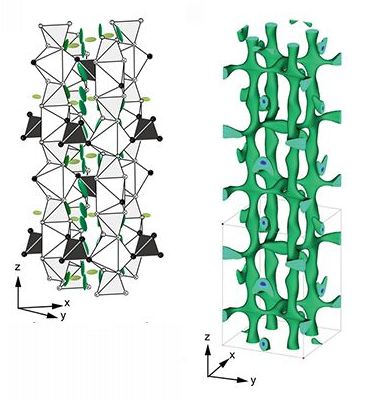By Gary Elinoff, contributing writer
Toyota has committed itself to introducing an all-electric vehicle powered by an “all-solid-state battery,” which will charge in minutes rather than in hours, and it will do so by 2022. As originally reported in the Chunichi Shimbun, an important Japanese regional newspaper in an area home to many Toyota facilities, the company hopes that solid-state batteries will overcome a second weakness inherent in today’s all-electrics, which is their limited cruising range.
Toyota has also had tremendous global success with its famous Prius hybrids, and, in keeping with Japan’s push for what has been described as a hydrogen-based energy economy, the company has previously championed cars powered by hydrogen fuel cells. However, reaching a critical mass of hydrogen refueling stations has been problematic, given the essentially dangerous nature of the very explosive gas.
So what is the reason for the abrupt change of course? In a word, China, Toyota’s all-important customer and a nation that sees an all-electric automotive future for itself. Toyota expects to start building electric vehicles (EVs) in China within two years, albeit initially with now “old-school” lithium-ion batteries (LiBs). Significantly, as reported in Reuters, Toyota President Akio Toyoda himself will be spearheading the charge into the all-electric future.
Beyond the potential for greater energy storage capacity and faster charge times that solid-state batteries hold over LiBs, there is also the safety factor. LiBs utilize liquid electrolytes to ferry ions between their cathode and anode, and problems abound, including the well-known tendency for LiBs to overheat and even to explode.
Battery technology as it exists today is major bottleneck in many areas of technology aside from transportation, and there are many efforts being undertaken in academia and industry to find a breakthrough, including an electrode architecture based on MXene. However, as reported to Forbes by Toyota spokesperson Kayo Doi, “Among new-generation batteries, at this stage, solid-state batteries are considered closest to the level of practical application required to equip vehicles for volume production. We are working on research and development, including the production engineering of solid-state batteries, to commercialize them by the early 2020s.”
The Forbes article cites a research article summary from the Tokyo Institute of Technology titled “Solid electrolytes open doors to solid-state batteries.” In collaboration with Toyota and others, researchers synthesized what they describe as lithium-based “superionic” materials, which “are solid crystal structures through which ions can ‘hop’ easily, essentially maintaining a flow of ions similar to that which occurs inside a liquid electrolyte.” In other words, they have developed what is, essentially, a solid-state electrolyte.

Crystal structure and lithium conduction pathway of a superionic material. Source: Tokyo Tech News (edited).
In addition to being immune to the problems associated with liquid electrolytes already described, early-stage batteries have been developed using superionic materials that operate over a range of −30°C and 100°C with high power densities. In addition, ultra-fast charging was achieved, and significantly, they retained their charge for long periods.
There is a lot of time between now and 2022, and this isn’t the first time that “battery breakthroughs” have been touted, but considering that no less an actor than Toyota Motors is involved, there is reason to hope.
Advertisement
Learn more about Electronic Products Magazine





